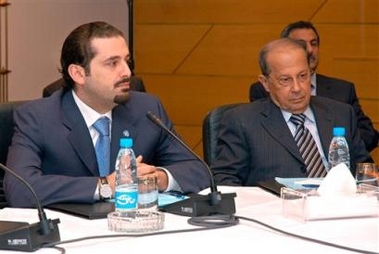 By Lin Noueihed , BEIRUT (Reuters) – Rival politicians resumed talks on Friday to end Lebanon’s political crisis but were unlikely to decide to dismiss the president or agree on the fate of Hizbollah’s weapons. The "national dialogue" conference, the first top-level political gathering since Lebanon’s 1975-1990 civil war, was adjourned on April 3 with a promise to lay to rest a dispute over whether Emile Lahoud should stay or go.
By Lin Noueihed , BEIRUT (Reuters) – Rival politicians resumed talks on Friday to end Lebanon’s political crisis but were unlikely to decide to dismiss the president or agree on the fate of Hizbollah’s weapons. The "national dialogue" conference, the first top-level political gathering since Lebanon’s 1975-1990 civil war, was adjourned on April 3 with a promise to lay to rest a dispute over whether Emile Lahoud should stay or go.
Lahoud has been under pressure to resign from politicians, who see him as the last vestige of Syrian tutelage that ended a year ago. The president, who has appeared relaxed and assertive on television in recent weeks, has so far refused to step down.
Parliament chooses the president in Lebanon, but political sources say that even the anti-Syrian bloc, which won a majority in the 128-seat house in May-June elections, has been unable to agree on its own preferred candidate let alone one that would be acceptable to other deputies. That being the case, the sources envision two scenarios.
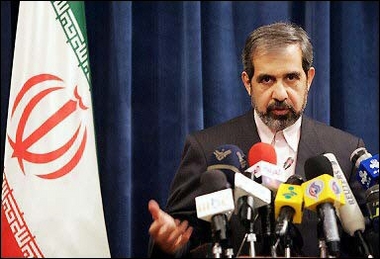 By Bill Samii, Iranian involvement in Lebanese affairs has been an issue since the early 1980s, and it came in for renewed attention last week. On April 18, a United Nations report urged Tehran to cooperate to resolve Lebanese issues. Washington’s ambassador to the UN has welcomed the spotlight on Iran’s involvement in Lebanon, while an outspoken Lebanese politician has been decrying this problem for some time.
By Bill Samii, Iranian involvement in Lebanese affairs has been an issue since the early 1980s, and it came in for renewed attention last week. On April 18, a United Nations report urged Tehran to cooperate to resolve Lebanese issues. Washington’s ambassador to the UN has welcomed the spotlight on Iran’s involvement in Lebanon, while an outspoken Lebanese politician has been decrying this problem for some time.
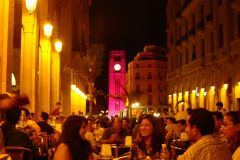 By Alaa Shahine, BEIRUT (Reuters) – The young, pretty actress appears before a capacity crowd at a Beirut theater and says she was forced to shave her pubic hair to please her husband in bed after finding out he was cheating on her. "My husband hates the hair. He thinks it is filthy and disgusting and forced me to remove it … and when I stopped shaving he had an affair with another woman," she says.
By Alaa Shahine, BEIRUT (Reuters) – The young, pretty actress appears before a capacity crowd at a Beirut theater and says she was forced to shave her pubic hair to please her husband in bed after finding out he was cheating on her. "My husband hates the hair. He thinks it is filthy and disgusting and forced me to remove it … and when I stopped shaving he had an affair with another woman," she says. 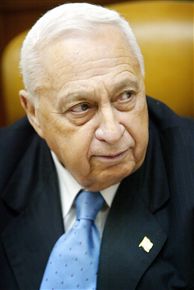
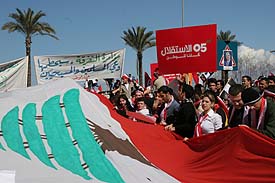 By: Khaldoon Al-Saee,
By: Khaldoon Al-Saee, 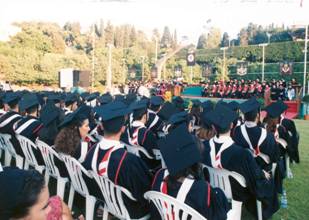 BEIRUT, 17 April (IRIN) – "I left school when I was only 11," said 38 year-old Ihsan. "My mother became ill, and
BEIRUT, 17 April (IRIN) – "I left school when I was only 11," said 38 year-old Ihsan. "My mother became ill, and 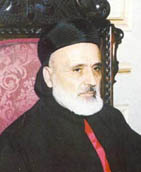 By Doreen Abi Raad, Catholic News Service BEIRUT, Lebanon (CNS) — In an Easter message, the head of Lebanon’s Maronite Catholic Church said that division among government officials is polarizing the country at the expense of the Lebanese people, who are on the verge of despair.
By Doreen Abi Raad, Catholic News Service BEIRUT, Lebanon (CNS) — In an Easter message, the head of Lebanon’s Maronite Catholic Church said that division among government officials is polarizing the country at the expense of the Lebanese people, who are on the verge of despair. 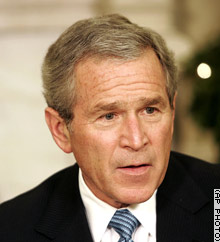 President George W. Bush says Lebanon
President George W. Bush says Lebanon 


